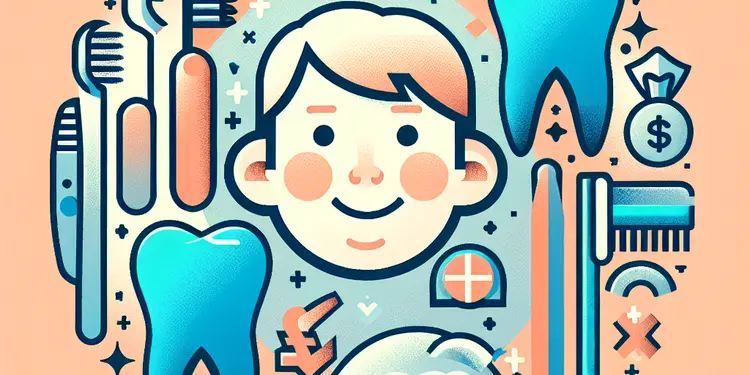
Find Help
More Items From Ergsy search
-
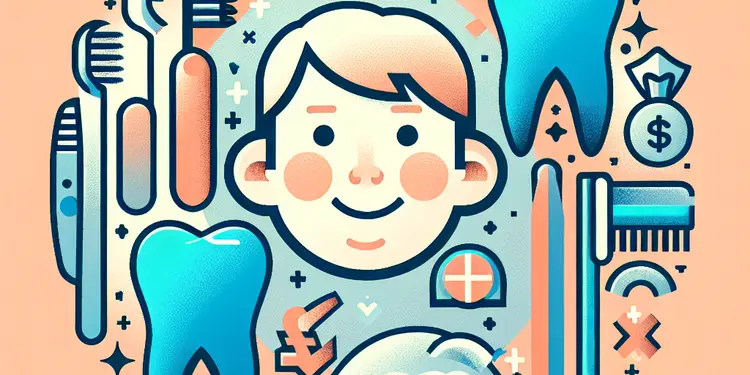
Is tooth decay common in children?
Relevance: 100%
-

How is tooth decay diagnosed?
Relevance: 79%
-
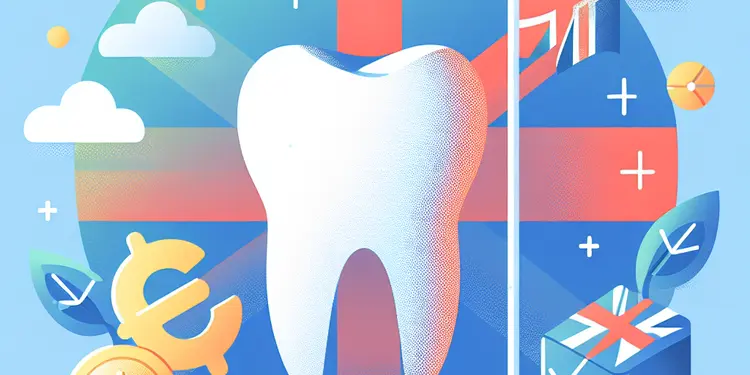
What are the symptoms of tooth decay?
Relevance: 79%
-
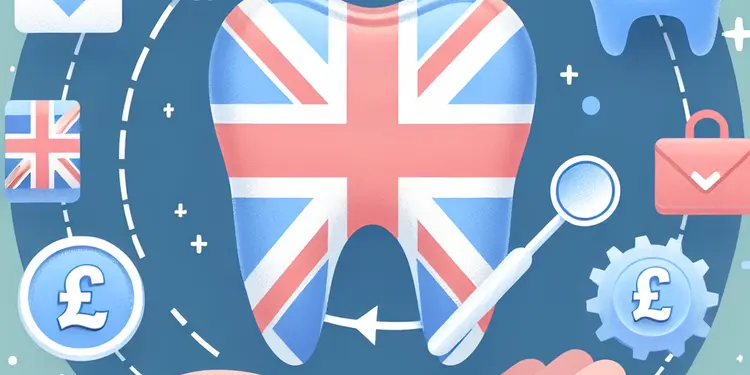
Can tooth decay be reversed?
Relevance: 79%
-
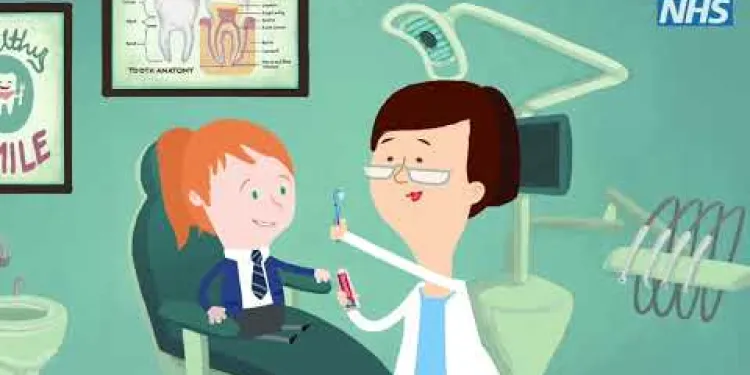
Oral Health Awareness - Tooth Decay
Relevance: 78%
-
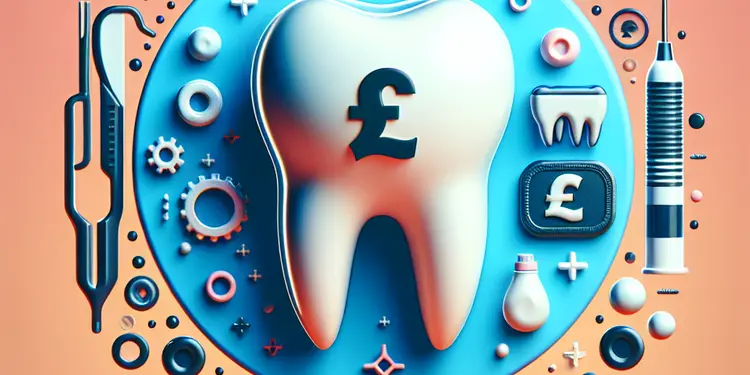
How can I prevent tooth decay?
Relevance: 77%
-
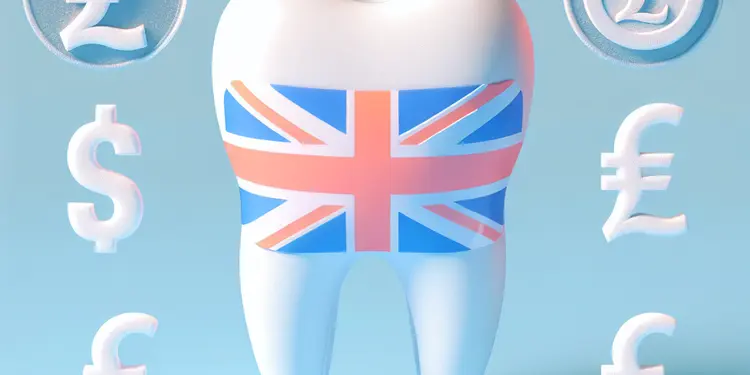
How does diet affect tooth decay?
Relevance: 76%
-
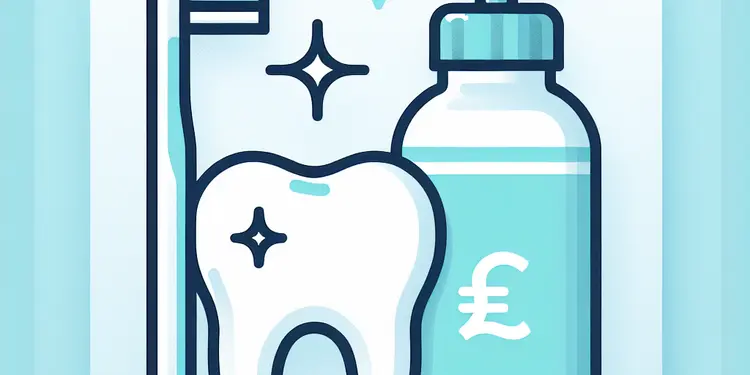
Can using mouthwash prevent tooth decay?
Relevance: 74%
-
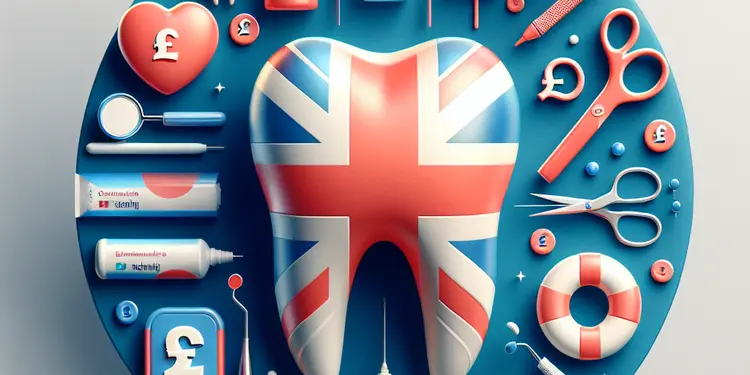
How does fluoride help prevent tooth decay?
Relevance: 71%
-
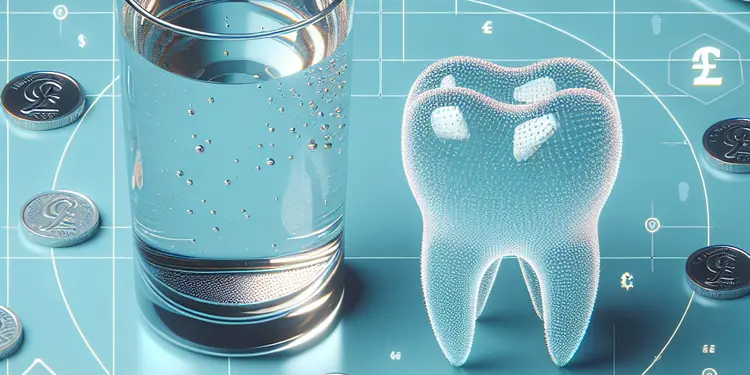
Can drinking water help prevent tooth decay?
Relevance: 68%
-

Are sugary drinks worse than sugary foods for causing tooth decay?
Relevance: 65%
-
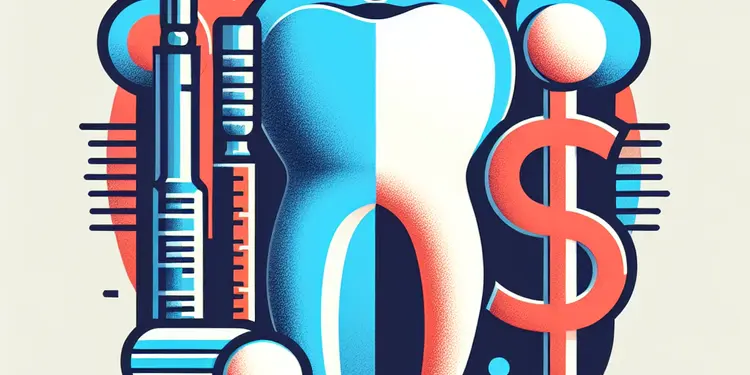
What is the role of dental sealants in preventing tooth decay?
Relevance: 65%
-
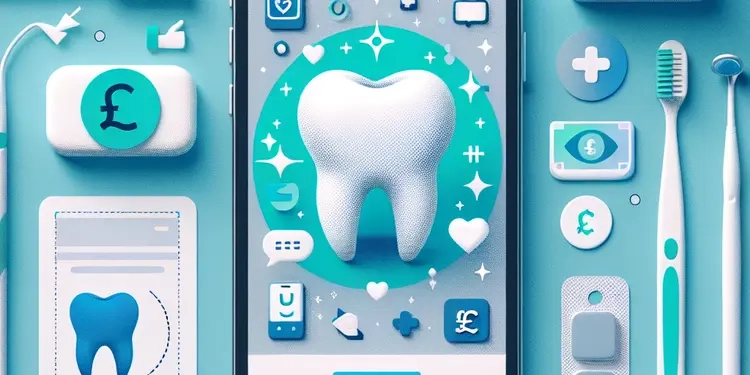
What is tooth decay?
Relevance: 61%
-
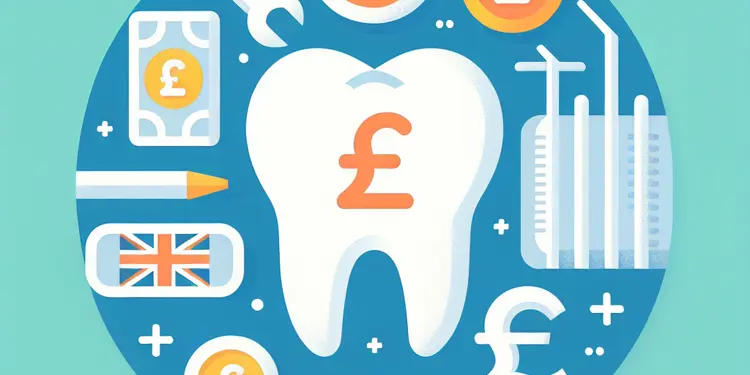
What treatments are available for tooth decay?
Relevance: 54%
-
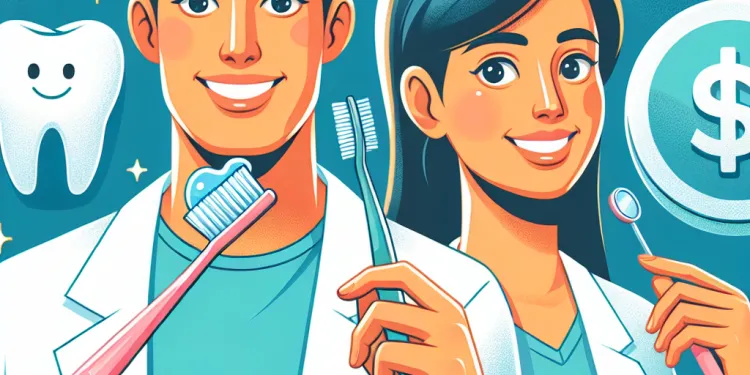
Dental Health: Tips for All Ages
Relevance: 33%
-
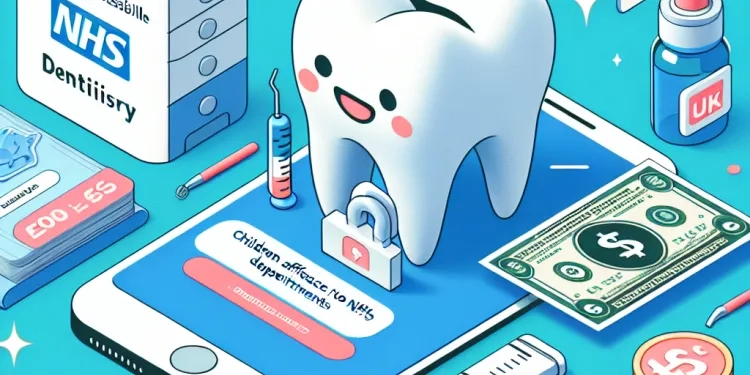
Can children get NHS dentist appointments?
Relevance: 27%
-

How can I satisfy my sweet tooth without consuming sugar?
Relevance: 25%
-
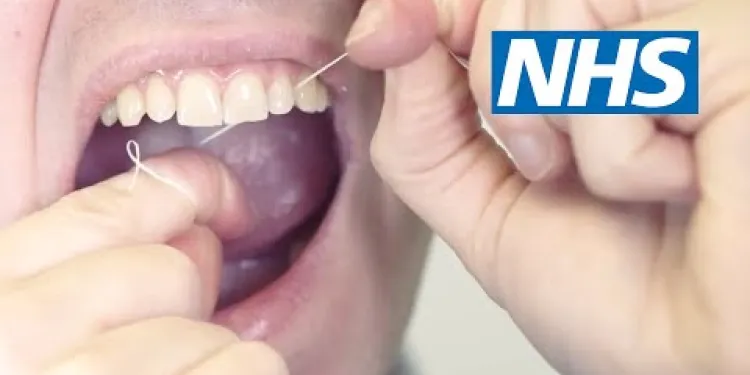
How to floss | NHS
Relevance: 23%
-
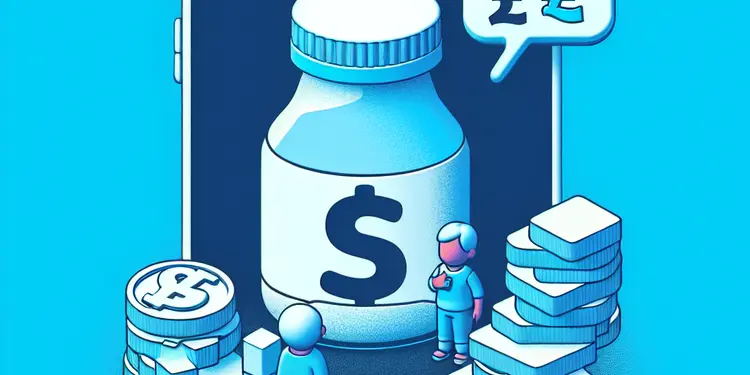
How many grams of sugar should a child consume daily?
Relevance: 23%
-

Who are SEND children?
Relevance: 22%
-

What are SEND children?
Relevance: 22%
-

Is Baxdrostat suitable for children?
Relevance: 22%
-
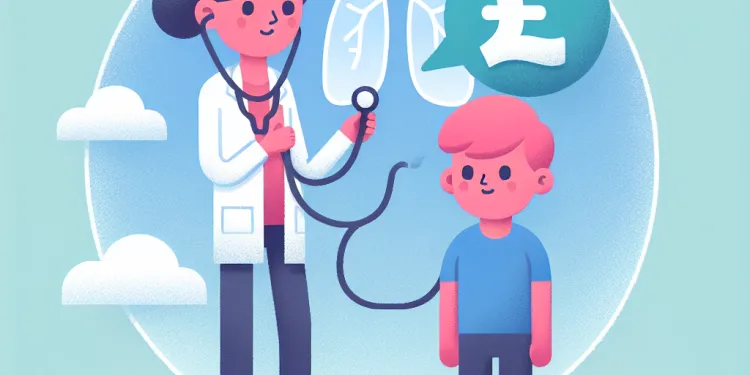
What is lupus in children?
Relevance: 22%
-

Lupus in children | NHS
Relevance: 22%
-
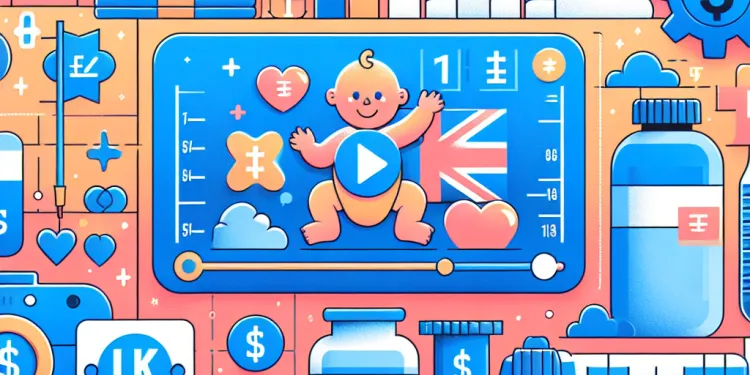
Children's Vaccination Schedule
Relevance: 22%
-

How much sugar should I eat every day?
Relevance: 21%
-
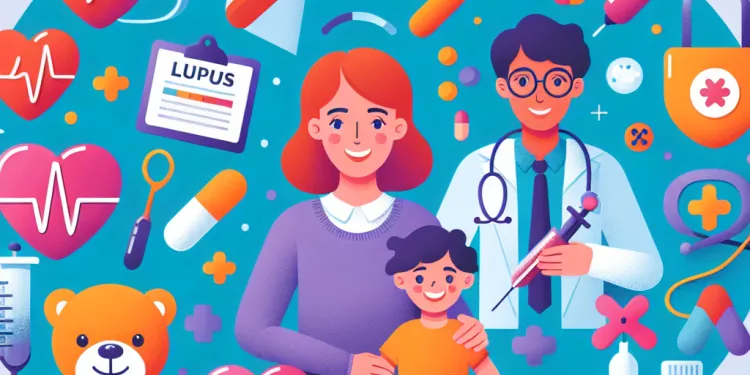
What causes lupus in children?
Relevance: 21%
-

Are there specific mobility equipment for children?
Relevance: 21%
-

Can children use Mounjaro?
Relevance: 21%
-
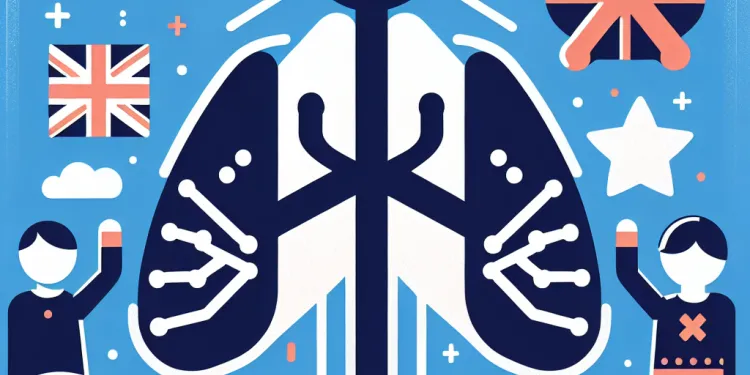
Can children outgrow asthma?
Relevance: 21%
-
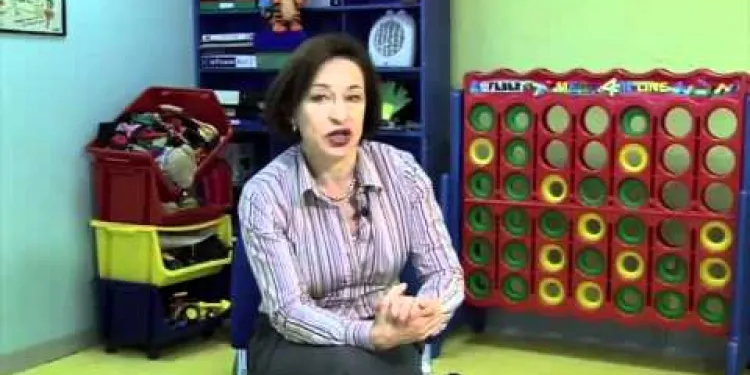
Children With Co-ordination Difficulties and Dyspraxia
Relevance: 21%
-
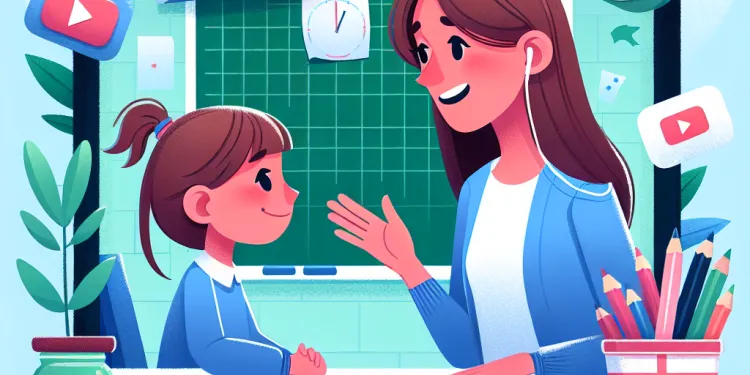
Understanding Mental Health in Children
Relevance: 21%
-

Can Wegovy be used by children?
Relevance: 21%
-
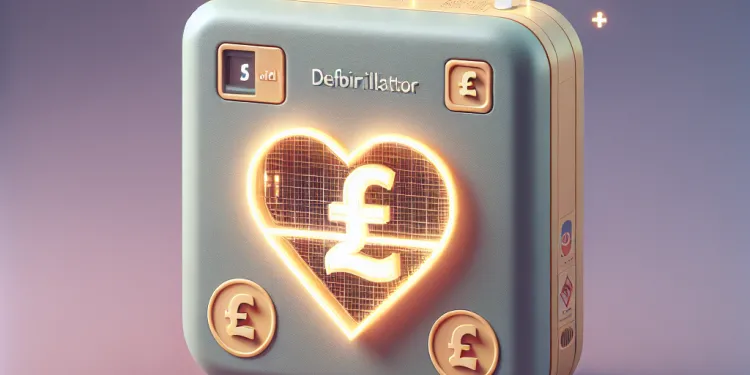
Can defibrillators be used on children?
Relevance: 21%
-

Dyspraxia Children: How to Help
Relevance: 21%
-

What treatments are covered by the NHS dental service?
Relevance: 21%
-

How is lupus diagnosed in children?
Relevance: 21%
-

Why do some children stammer?
Relevance: 21%
-

Is orange juice acidic and can it affect teeth?
Relevance: 21%
-

Do groomers target children with specific vulnerabilities?
Relevance: 20%
Is Tooth Decay Common in Children?
Tooth decay, often referred to as dental caries or cavities, is a prevalent concern among children in the UK. Despite advances in dental care and prevention, tooth decay remains one of the most chronic conditions affecting children. Its high occurrence is linked to various factors, including diet, oral hygiene practices, and access to dental care.
Prevalence of Tooth Decay Among Children
In the UK, tooth decay is considered a significant public health issue. According to the Public Health England's oral health survey, a considerable percentage of children experience tooth decay by the time they start school. The problem is more pronounced in certain regions and among social groups with limited access to dental care services. This disparity underscores the importance of initiatives aimed at improving access to dental health education and services.
Causes of Tooth Decay in Children
One of the primary causes of tooth decay in children is the frequent consumption of sugary foods and beverages. Sugars break down into acids, which attack the tooth enamel, eventually leading to cavities. Poor oral hygiene, such as infrequent brushing and flossing, can exacerbate the problem. Additionally, factors such as genetics and environmental influences can play a role in a child's susceptibility to cavities.
Impact of Tooth Decay on Children's Health
Tooth decay can have significant implications for a child's health and wellbeing. It often results in pain and discomfort, which can impair eating, speaking, and sleeping. Dental caries can also affect a child's ability to concentrate at school, impacting their academic performance. If left untreated, cavities can lead to more severe dental issues and infections, necessitating more extensive dental treatments.
Prevention and Management
Preventing tooth decay involves a collective effort from parents, healthcare professionals, and policymakers. Regular dental check-ups and proper oral hygiene, including brushing with fluoride toothpaste, are crucial steps in preventing cavities. Parents are encouraged to implement healthy dietary habits, minimizing the intake of sugary snacks and drinks. Education plays a critical role in equipping children with the knowledge and skills to maintain good oral health.
Public health initiatives in the UK aim to address disparities in dental care access and promote community-based programmes that educate about oral health. Such programmes are essential, especially in underserved areas, to ensure all children have the opportunity to maintain healthy teeth.
Conclusion
Tooth decay remains a common and concerning issue among children in the UK. While progress has been made, ongoing efforts are necessary to reduce the prevalence of dental caries and minimise its impact on children's health. Through education, accessible dental services, and preventative measures, it is possible to improve the oral health outcomes of children across the country.
Is Tooth Decay Common in Children?
Tooth decay, also called cavities, is a big problem for many children in the UK. Even with better dental care, tooth decay is still a common condition that affects lots of children. It happens because of many reasons like what kids eat, how they clean their teeth, and if they can see a dentist regularly.
How Many Children Have Tooth Decay?
In the UK, tooth decay is a big concern. Public Health England says that a lot of children have cavities by the time they go to school. Some areas and groups have more tooth decay because it's harder for them to get dental care. This shows why it's important to help everyone learn about looking after their teeth and to get dental services to those who need them.
Why Do Children Get Tooth Decay?
One main reason children get tooth decay is eating and drinking too many sugary things. Sugar turns into acid, which can hurt teeth and cause cavities. Not brushing and flossing often makes it worse. Other things like family history and where children live can also affect if they get cavities.
How Does Tooth Decay Affect Children?
Tooth decay can be very painful for children and make eating, talking, and sleeping hard. It can also make it tough for them to focus in school, which can hurt their learning. If not treated, it can lead to serious dental problems and need more complicated treatments.
How to Prevent and Manage Tooth Decay
Stopping tooth decay needs help from parents, doctors, and others in charge. Children should see a dentist regularly and practice good oral hygiene, like brushing with fluoride toothpaste. Parents should help children eat healthy and avoid too many sugary snacks and drinks. Teaching children about taking care of their teeth is very important.
There are programs in the UK to help everyone learn about dental health and get access to care, especially in places where dental services are less available. These programs are important to help all children have healthy teeth.
Conclusion
Tooth decay is a common problem for children in the UK. While there has been progress, we must keep working to reduce cavities and help children's health. Education, access to dentists, and good habits can improve dental health for kids all over the country.
Frequently Asked Questions
Is tooth decay common in children?
Yes, tooth decay is very common in children. It is the most prevalent chronic disease in children.
What causes tooth decay in children?
Tooth decay in children is caused by bacteria in the mouth that produce acid from sugar and starches in food. This acid attacks tooth enamel, leading to cavities.
How can tooth decay in children be prevented?
Tooth decay can be largely prevented through good oral hygiene practices, such as brushing and flossing, regular dental check-ups, and a healthy diet low in sugar.
At what age can children start experiencing tooth decay?
Children can start experiencing tooth decay as soon as their teeth emerge, which can be as early as 6 months of age.
Are baby teeth susceptible to decay?
Yes, baby teeth are susceptible to decay and it's important to take care of them as they are vital for chewing, speaking, and holding space for permanent teeth.
What are the signs of tooth decay in children?
Signs of tooth decay in children include white spots on teeth, dark spots or pits, toothaches, and sensitivity to hot, cold, or sweet food.
How often should children see a dentist to prevent tooth decay?
Children should see a dentist for a routine check-up every six months to monitor for tooth decay and receive professional cleanings.
What role does diet play in preventing tooth decay in children?
A healthy diet low in sugary foods and drinks is crucial to preventing tooth decay in children. Regular, healthy meals and snacks can help maintain strong teeth and gums.
Is fluoride important for preventing tooth decay in children?
Yes, fluoride helps to strengthen tooth enamel and make it more resistant to decay. Fluoridated water and fluoride toothpaste are beneficial.
Can tooth decay in children affect their permanent teeth?
Yes, if left untreated, tooth decay in primary teeth can affect the health and development of permanent teeth and lead to future dental problems.
What should parents do if they suspect their child has tooth decay?
Parents should schedule a dental appointment as soon as possible if they suspect their child has tooth decay for early treatment and prevention of further issues.
How is tooth decay in children treated?
Treatment for tooth decay in children depends on the severity, ranging from fluoride treatments for early decay to fillings, crowns, or extractions for more severe cases.
Can baby bottle feeding cause tooth decay?
Yes, prolonged bottle feeding, especially with sugary drinks, can cause 'baby bottle tooth decay.' It's advised to avoid putting a child to bed with a bottle.
How does breastfeeding compare to bottle feeding in terms of tooth decay risk?
Breastfeeding has a lower risk compared to bottle feeding with sugary drinks, but prolonged nighttime breastfeeding has been associated with teeth decay.
Is tooth decay more common in certain age groups of children?
Tooth decay can occur at any age, but it is particularly common in young children whose teeth are newly erupted and thinner, making them more vulnerable.
Do genetics play a role in how susceptible a child is to tooth decay?
Yes, genetics can influence a child's risk for tooth decay, affecting aspects like enamel strength and saliva composition, though environmental factors are significant too.
What is the relationship between gum disease and tooth decay in children?
Both gum disease and tooth decay are caused by harmful bacteria in the mouth. Good oral hygiene can prevent both conditions in children.
How important is dental sealant in preventing tooth decay in children?
Dental sealants are a protective coating applied by dentists to the chewing surfaces of back teeth, and they are highly effective in preventing cavities in these vulnerable areas.
Can tooth decay in children be reversed?
In its early stages, tooth decay can often be stopped or reversed with proper hygiene and fluoride treatment. However, advanced decay requires professional intervention.
What impact can untreated tooth decay have on a child's overall health?
Untreated tooth decay can lead to pain, infection, difficulty eating, and speaking issues. It can also affect a child’s confidence and concentration in school.
Do many children get tooth decay?
Yes, lots of children can get cavities or holes in their teeth. This is called tooth decay.
To keep teeth strong, children should brush their teeth twice a day with toothpaste. They should also visit the dentist regularly.
Eating healthy snacks and drinking water instead of sugary drinks can help protect their teeth.
If kids find brushing tricky, using a toothbrush with a timer or fun apps can make it easier and more fun.
Yes, kids often get tooth decay. It is the most common long-lasting disease in children.
Why do children get bad teeth?
Children can get holes in their teeth if they eat a lot of sweet foods or soda. Germs in the mouth use sugar to make acids that hurt the teeth. Brushing teeth and eating less sugar can help keep teeth healthy. A dentist can help too.
Children get tooth decay when tiny bugs in their mouths make acid from the sugar and starchy foods they eat. This acid can hurt their teeth and cause holes called cavities.
How can we stop cavities in children's teeth?
You can stop tooth decay by taking care of your teeth. Brush and floss your teeth every day, visit the dentist regularly, and eat healthy food with little sugar.
When do children start getting cavities?
Children can get cavities when they are very young. It's important to take care of their teeth early.
Help kids brush their teeth twice every day. Use a tiny bit of toothpaste.
Visit the dentist often to keep teeth healthy.
Children can get tooth decay when their teeth start to grow. This can happen when they are as young as 6 months old.
Can baby teeth get cavities?
Yes, baby teeth can get cavities. It is important to keep them healthy. Healthy baby teeth help kids chew food, talk clearly, and make room for adult teeth.
How do I know if a child's tooth is going bad?
Here are some ways to tell if a child's tooth is going bad (tooth decay):
- The child says their tooth hurts.
- The tooth looks brown or white.
- The child has bad breath (their mouth smells).
- The child does not want to eat because their tooth hurts.
If you see these signs, visit a dentist.
It helps to brush teeth twice a day and eat less sugary foods.
Signs that a child's teeth are not healthy can be:
- White spots on their teeth.
- Dark spots or little holes in their teeth.
- Toothaches (their teeth hurt).
- Their teeth hurt when eating hot, cold, or sweet foods.
Using pictures can help to remember these signs. If teeth hurt often, it's good to visit the dentist. Parents can use books or videos about staying healthy to help kids learn more about taking care of teeth.
How many times should kids go to the dentist to keep their teeth healthy?
Kids should visit the dentist at least two times a year. This helps to keep their teeth strong and stops them from getting holes in their teeth (called tooth decay).
If kids have special needs, it might be good to see the dentist more often. It's important to listen to what the dentist says.
To help remember to brush teeth and visit the dentist, parents can use reminders on their phone or calendars.
Kids should go to the dentist every six months. This helps the dentist check their teeth for problems. The dentist also cleans their teeth.
How can what kids eat stop their teeth from going bad?
To keep children's teeth healthy, it is important to eat less sugary food and drinks. Eating regular, healthy meals and snacks helps keep teeth and gums strong.
Here are some tips to make it easier:
- Choose water or milk instead of sugary drinks.
- Eat fruits and vegetables with meals.
- Brush teeth twice a day with toothpaste.
- Visit the dentist regularly for check-ups.
- Use fun and colorful reminders to brush and floss every day.
Using pictures and games can help make learning about healthy teeth fun!
Does fluoride help stop teeth from getting holes in children?
Yes, fluoride makes teeth strong and helps stop cavities. Drinking water with fluoride and using fluoride toothpaste is good for your teeth.
Can bad teeth in kids hurt their grown-up teeth?
If you don't take care of your teeth when they are little, it can cause big problems. It can hurt the new big teeth that come in later and give you tooth troubles when you grow up.
What can parents do if they think their child has a bad tooth?
If you think your child has a bad tooth, take them to the dentist soon. The dentist can help fix the tooth and stop more problems.
How do we fix tooth problems in children?
If a child has a bad tooth, how we fix it depends on how bad it is. If it is not too bad, we can use something called fluoride to make the tooth strong again. If the tooth is really bad, we might need to fix it with a filling or a crown, or sometimes even take the tooth out.
To help your child understand what will happen, you can use pictures or models of teeth. Some kids find it helpful to use their finger to point at words while reading. Also, asking questions can help make sure they understand.
Can using a baby bottle hurt teeth?
Using a baby bottle too much can sometimes cause tooth problems. This is because milk or juice from the bottle can stay on the teeth and cause them to rot.
To help, try these tips:
- Don't put sugary drinks in the bottle.
- Use water instead of juice or milk at bedtime.
- Clean your baby's teeth after feeding.
If you need help, ask a dentist or doctor.
Yes, using a bottle for a long time, especially with sweet drinks, can cause 'baby bottle tooth decay.' It is best not to let a child go to bed with a bottle.
Which is better for teeth: breastfeeding or bottle feeding?
Let's talk about feeding babies and caring for their teeth. When we feed babies, we can use breastfeeding or bottles. Some people wonder how each affects the baby's teeth.
Both ways of feeding are good, but it's important to know how they can affect your baby's teeth:
- Breastfeeding: Some experts say it can help protect the baby's teeth because breastfeeding makes the mouth muscles strong.
- Bottle Feeding: Using bottles with sweet drinks can be bad for teeth. It can cause holes in the teeth, which we call tooth decay.
Here are some tips for keeping your baby's teeth healthy:
- Try not to give your baby sugary drinks in their bottle.
- Clean your baby's teeth and gums gently every day.
- Take your baby to the dentist to check their teeth.
Breastfeeding is safer than using bottles with sugary drinks. But if you breastfeed at night for a long time, it might cause tooth decay.
Do some ages of kids get more cavities in their teeth?
Tooth decay can happen to anyone, no matter their age. But kids often get it because their teeth are new and not as strong.
Can genetics affect how easily a child gets tooth decay?
Yes, genes can affect if a child gets cavities. Genes can make teeth weaker or change how spit works, but things around us matter a lot too.
How are gum disease and tooth decay connected in children?
Does your child have sore or red gums? This could be gum disease.
Does your child have holes or spots on their teeth? This is tooth decay.
Both can hurt your child's mouth.
Gum disease can lead to tooth decay if it gets worse.
Help your child by brushing their teeth every day.
Use a toothbrush and toothpaste made for kids.
Visit the dentist regularly to keep their teeth and gums healthy.
Bad germs in the mouth can cause gum problems and make teeth rot. Brushing teeth well can stop these problems in kids.
How does dental sealant help stop tooth decay in kids?
Dental sealant is a special coating that helps protect teeth from getting holes, called cavities. It keeps the teeth strong and healthy.
Tools to help: - Ask your dentist about dental sealant for your child. - Use pictures and videos to explain how it works. - Make brushing teeth a fun daily habit.
Dental sealants are a special protective layer. Dentists put them on the tops of your back teeth. They help stop cavities from forming in these areas.
Can we fix tooth decay in kids?
When a tooth starts to get a hole, you can sometimes stop it or fix it by brushing your teeth well and using fluoride toothpaste. But if the hole gets bigger, a dentist has to fix it.
How can tooth decay that is not treated affect a child's health?
Tooth decay can hurt a child’s health if it is not fixed.
- Pain: Bad teeth can make a child’s mouth hurt.
- Eating: It can be hard for a child to eat if their teeth hurt.
- Learning: If a child is in pain, it can be hard to focus at school.
- Infections: Tooth decay can cause big problems like infections.
Taking care of teeth is important. Going to the dentist can help keep teeth healthy.
Tools that might help:
- Picture books about teeth and dentists.
- Videos for kids about dental health.
If you don’t treat tooth decay, it can cause problems. Teeth might hurt. You could get an infection. It might be hard to eat or talk properly. It can also make kids feel bad about themselves and make it hard for them to focus at school.
Useful Links
This website offers general information and is not a substitute for professional advice.
Always seek guidance from qualified professionals.
If you have any medical concerns or need urgent help, contact a healthcare professional or emergency services immediately.
Some of this content was generated with AI assistance. We’ve done our best to keep it accurate, helpful, and human-friendly.
- Ergsy carfully checks the information in the videos we provide here.
- Videos shown by Youtube after a video has completed, have NOT been reviewed by ERGSY.
- To view, click the arrow in centre of video.
- Most of the videos you find here will have subtitles and/or closed captions available.
- You may need to turn these on, and choose your preferred language.
- Go to the video you'd like to watch.
- If closed captions (CC) are available, settings will be visible on the bottom right of the video player.
- To turn on Captions, click settings .
- To turn off Captions, click settings again.
More Items From Ergsy search
-

Is tooth decay common in children?
Relevance: 100%
-

How is tooth decay diagnosed?
Relevance: 79%
-

What are the symptoms of tooth decay?
Relevance: 79%
-

Can tooth decay be reversed?
Relevance: 79%
-

Oral Health Awareness - Tooth Decay
Relevance: 78%
-

How can I prevent tooth decay?
Relevance: 77%
-

How does diet affect tooth decay?
Relevance: 76%
-

Can using mouthwash prevent tooth decay?
Relevance: 74%
-

How does fluoride help prevent tooth decay?
Relevance: 71%
-

Can drinking water help prevent tooth decay?
Relevance: 68%
-

Are sugary drinks worse than sugary foods for causing tooth decay?
Relevance: 65%
-

What is the role of dental sealants in preventing tooth decay?
Relevance: 65%
-

What is tooth decay?
Relevance: 61%
-

What treatments are available for tooth decay?
Relevance: 54%
-

Dental Health: Tips for All Ages
Relevance: 33%
-

Can children get NHS dentist appointments?
Relevance: 27%
-

How can I satisfy my sweet tooth without consuming sugar?
Relevance: 25%
-

How to floss | NHS
Relevance: 23%
-

How many grams of sugar should a child consume daily?
Relevance: 23%
-

Who are SEND children?
Relevance: 22%
-

What are SEND children?
Relevance: 22%
-

Is Baxdrostat suitable for children?
Relevance: 22%
-

What is lupus in children?
Relevance: 22%
-

Lupus in children | NHS
Relevance: 22%
-

Children's Vaccination Schedule
Relevance: 22%
-

How much sugar should I eat every day?
Relevance: 21%
-

What causes lupus in children?
Relevance: 21%
-

Are there specific mobility equipment for children?
Relevance: 21%
-

Can children use Mounjaro?
Relevance: 21%
-

Can children outgrow asthma?
Relevance: 21%
-

Children With Co-ordination Difficulties and Dyspraxia
Relevance: 21%
-

Understanding Mental Health in Children
Relevance: 21%
-

Can Wegovy be used by children?
Relevance: 21%
-

Can defibrillators be used on children?
Relevance: 21%
-

Dyspraxia Children: How to Help
Relevance: 21%
-

What treatments are covered by the NHS dental service?
Relevance: 21%
-

How is lupus diagnosed in children?
Relevance: 21%
-

Why do some children stammer?
Relevance: 21%
-

Is orange juice acidic and can it affect teeth?
Relevance: 21%
-

Do groomers target children with specific vulnerabilities?
Relevance: 20%


